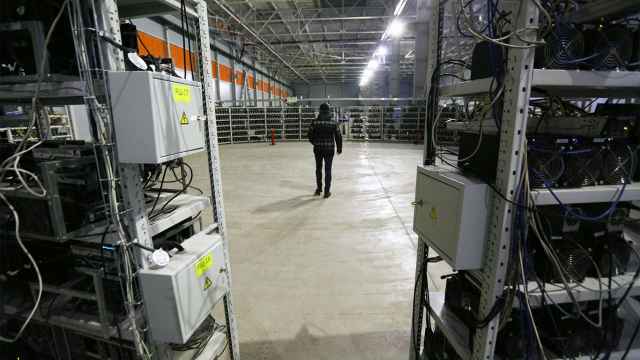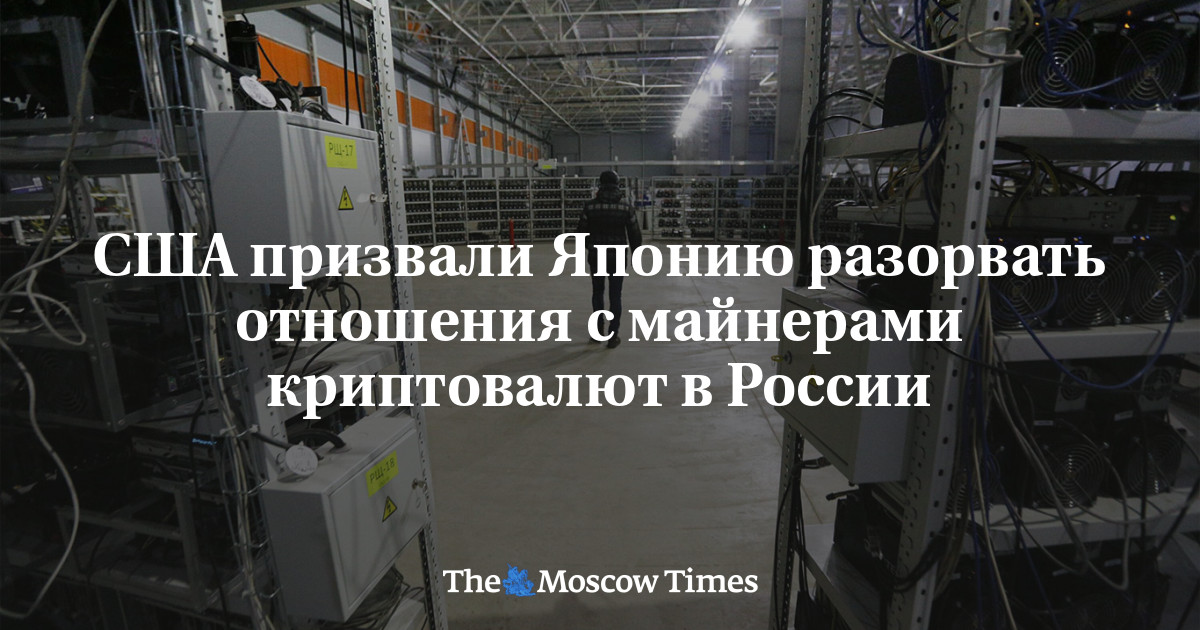
In an effort to further financially isolate Russia from the outside world, the US has called on Japan to pressure its cryptocurrency exchanges and miners to sever ties with Russia.
There are 31 officially registered crypto exchanges in Japan. The request from American diplomats concerns some of them: those who are still working in Russia, people close to the situation said. According to two of them, diplomats asked Japanese authorities to try to stop mining operations in the Irkutsk region.
Cheap hydroelectric power and low temperatures, which reduce the need to cool mining farms, have made the region a popular location for cryptocurrency production.
In response, Japan’s Financial Services Agency (FSA) again demanded that the crypto exchanges reporting to it sever all existing relationships with Russian divisions and counterparties, said three people close to the three exchanges.
The FSA and the US Embassy in Tokyo declined to comment. The US State Department said Washington and its allies are “unified in their determination to hold Russia accountable” for the war against Ukraine. “We will continue to assess the impact of our measures and are prepared to take further action,” a State Department spokesman said.
The government of Prime Minister Fumio Kishida is trying to keep pace with the United States and other allies on the issue of sanctions against the regime of Vladimir Putin and minimizing the work of Japanese businesses in Russia. According to informed people, Washington’s decision to report possible Japanese cryptocurrency mining operations in Russia was made as part of a policy of exerting constant pressure on it in the context of the ongoing war.
The FSA initially responded quickly to the Russian invasion. On March 14, the agency formally asked exchanges to monitor any accounts and transactions related to the movement of assets of any person or entity under sanctions. Before this, the Foreign Exchange and Foreign Trade Law was urgently amended, bringing cryptocurrencies and other digital assets under its purview, and giving the government additional powers to restrict cross-border crypto payments.
The FSA’s March notice did not directly require exchanges to close any operations in Russia, but some interpreted it as such, and several exchanges ceased operations in the country that month, people close to the situation said. In particular, the Decurret crypto exchange stated that following the Russian invasion of Ukraine and the notification, the FSA decided to suspend its operations in Russia.
Many exchanges contacted by the FT said they do not currently have any operations in Russia. According to the head of one of them, he knows of at least one mining company that severed relations with Russia in June after an appeal from the United States.
However, informed sources claim that some exchanges and mining companies continue to conduct operations in Russia through a complex network of controlled entities. US diplomats also brought this to the attention of the Japanese authorities.
A former head of one of the exchanges, on condition of anonymity, confirmed that recently there has been increased pressure on Japanese crypto exchanges to force them to transfer mining operations or back offices outside of Russia. But he knows of at least one who decided to keep her business in Russia: to circumvent regulation, she opened a shell company in Singapore to process payments through her.

